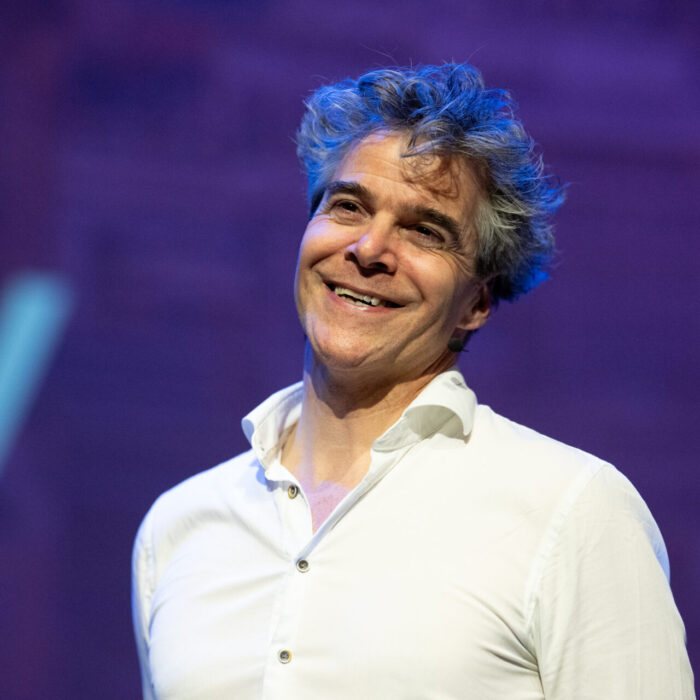Schema Therapy Advanced level
About this course
This advanced training builds upon the foundational schema therapy course, where you explored the key components: schema language and concepts, the therapeutic relationship (Limited Reparenting), and core techniques.
In this follow-up course, you will broaden your clinical application to include Cluster C personality disorders and narcissistic personality disorder, while also addressing critical topics such as suicidality, self-harm, and crisis management.
You will receive in-depth guidance on working with imagery rescripting and chairwork, particularly in challenging therapeutic situations. Role-play, demonstrations, and peer feedback will help you build confidence and refine your technique.
Program
Day 1 – Case Conceptualization & Diagnostic Techniques
Refresher: Schema therapy theory and language
Case conceptualization and the analysis phase
Diagnostic tools:
- Diagnostic imagery
- Chair technique
Day 2 – Working with Cluster C Disorders
Schema therapy for avoidant, dependent, and obsessive-compulsive presentations
Early-phase interventions:
- Coping modes via chairwork
- Critical modes through imagery rescripting
Day 3 – Working with Cluster B Disorders
Suicide, self-harm, and managing clinical crises
Applying cognitive techniques
Schema therapy in:
- Narcissistic personality disorder: empathic confrontation
- Borderline personality disorder: historical role-play
Day 4 – Integration, Testing & Healthy Adult Mode
Practical skills test
Middle- and final-phase interventions:
Strengthening the Healthy Adult
- Client rescripts imagery rescripting
- Chair technique for mode integration
Learning objectives
Knowledge
By the end of this course, you will:
- Possess advanced knowledge of schema therapy’s core elements
- Understand how to tailor schema therapy to Cluster B and C personality disorders
- Know how to manage complex clinical situations, such as resistance, avoidance, and emotional crises
- Be able to develop, implement, and evaluate schema therapy treatment plans
Skills
Upon completion, you will:
- Apply experiential techniques (imagery rescripting, chairwork) with greater fluency
- Navigate difficult therapeutic dynamics with confidence
- Demonstrate practical skills in role-play settings and clinical case application
Who is this course intended for?
This course is suitable for professionals working with clients with personality disorders or chronic, treatment-resistant mood/anxiety disorders, and is recognized within the certification routes of:
International Society for Schema Therapy (ISST)
To qualify for ISST certification, participants must:
- Hold a Master’s degree (or equivalent) in psychology, psychotherapy, psychiatry, or related fields
- Be licensed or certified to practice in their country, either via a national board or a professional association
Dutch Association for Schema Therapy (VSt)
Participants must:
- Hold a BIG registration (e.g. GZ psychologist, psychotherapist, psychiatrist, clinical psychologist, or orthopedagogue-generalist)
- Work with personality disorders or persistent, treatment-resistant symptoms
- Be trained in Cognitive Behavioural Therapy at a foundational level
Note: Those in training or working under the supervision of a registered schema therapist may also apply. For questions, contact us or refer to the FAQ at www.instituutschematherapie.nl.
Accreditation
This course is submitted for accreditation by the following associations (accreditation has always been granted in the past):
- Dutch Association for Schema Therapy (VSt)
- International Society for Schema Therapy (ISST)
Literature
Mandatory Books:
- Arntz, A. & van Genderen, H. (2021). Schema Therapy for Borderline Personality Disorder
- Jacob, G., van Genderen, H. & Seebauer, L. (2012). Breaking Negative Thinking Patterns
- Young, J.E., Klosko, J.S., & Weishaar, M.E. (2005). Schema Therapy: A Practitioner’s Guide
- Brockman, R., et al. (2023). Cambridge Guide to Schema Therapy
Audiovisual Products:
- Schema Therapy Step by Step (Van der Wijngaart & Van Genderen, 2016) – 95 scenes demonstrating schema therapy practice. Available at www.schematherapy.nl
Supplemental Readings (provided during the course):
- Bamelis et al. (2014): Effectiveness of Schema Therapy – RCT
- Van der Wijngaart, R. (2021): Imagery Rescripting
- Van der Wijngaart, R. (2023): Chairwork – Theory and Practice
- Van der Wijngaart & Van Genderen (2024): Schema Therapy for Cluster C Personality Disorders
Study load
Preparation per training day: max. 5 hours
(includes literature review, case formulation, and exercises). A generous estimation to allow for flexibility and avoid overload
Assessment
On the final morning, participants will complete a practical assessment in the form of a role-play exercise. Using a prepared clinical case, each participant will alternate between playing therapist and client, applying techniques such as imagery rescripting or chairwork under observation. Constructive feedback will be given, and successful participants will receive a certificate of completion.
 Course Calendar
Course Calendar
2609U-GE-EN Schema Therapy Advanced level
2509U-GE-EN Schema Therapy Advanced level
Waiting list registration
Fully booked
Teachers*
* Only a few of these teachers teach the course per course edition. Which teachers teach your course edition will be announced in the documentation of your course material after registration. This can always change.


